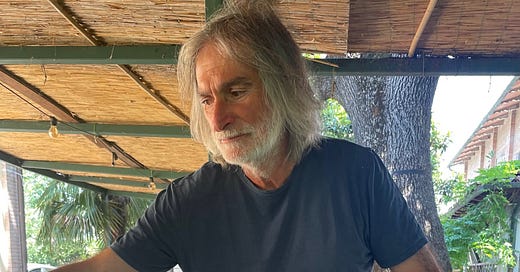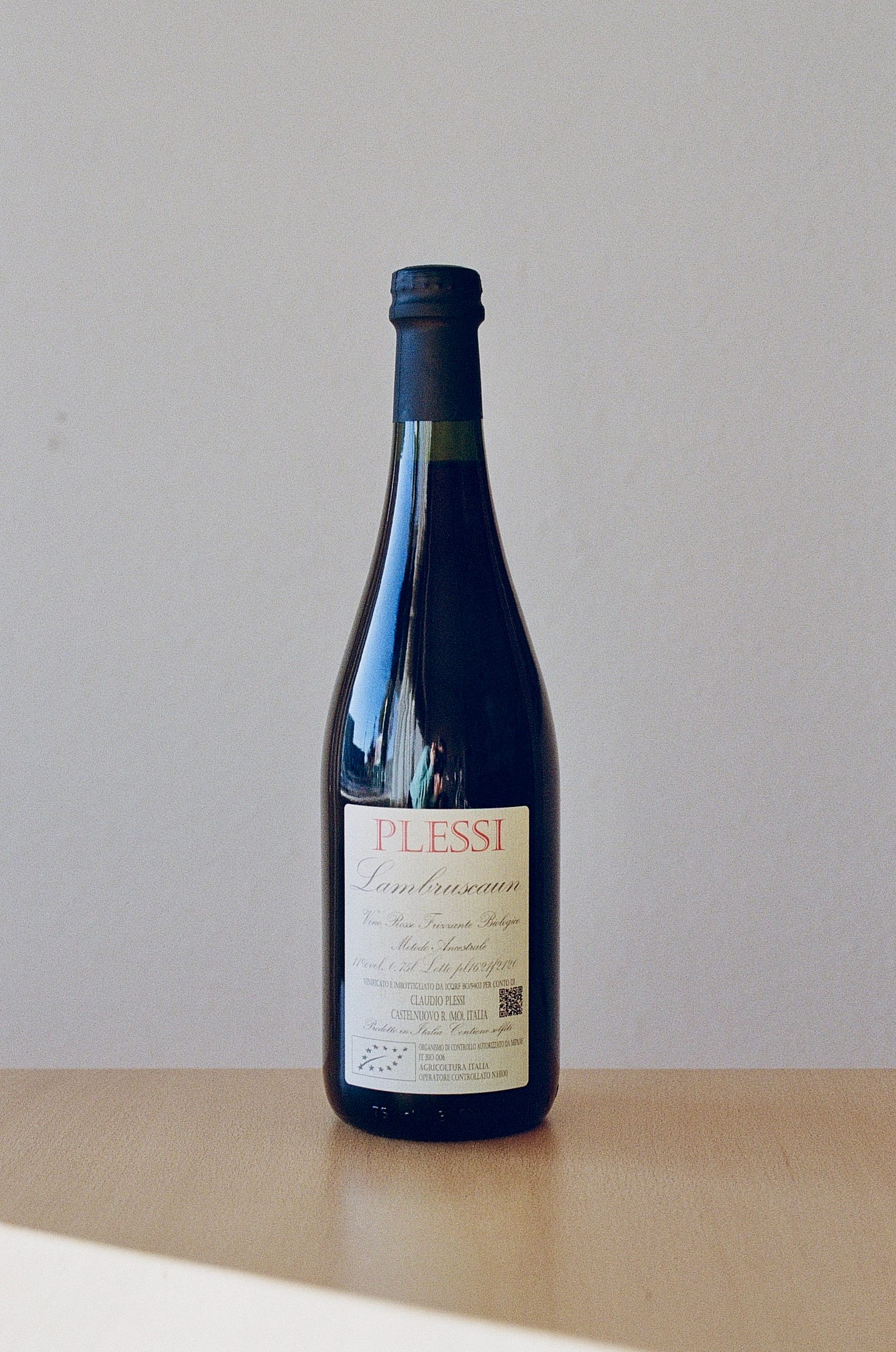The season passes rapidly, leaving behind half-eaten peaches and absent-minded thoughts. My philosophy of wine is non-knowledge. History, love, and stewardship hold no boundaries. Beauty happens at the borders of the past and present. Time pushes us forward, but I’ve always admired those who illuminate all of the dirty hands that came before them.
The wines of Claudio Plessi paint a story of his land, wrapped in wild beauty, traditions, and local indigenous varieties. In 1958, Claudio’s parents bought a vineyard in Castelnuovo Rangone, a town nestled in the hills south of Modena, Italy. The family started farming fruit trees and vines. As a little boy, Claudio made wine with his father, working in the cellar and exploring the wooden barrels yet to be filled with fruit juice. The family sold sparkling red wine and a small amount of other wines to friends and family.
It was as if the fruit trees and vines encouraged his curiosity and commitment to sustainable farming from a young age.
Claudio went on to study agriculture in Reggion Emilia, Parma, and Piacenzi returning home to take over his family’s vineyard: Belussi. During his time away, Claudio discovered almost forgotten grape varieties: Uva Tosca, Festasio, Lambrusco del Pellegrino, Sgavetta, and Trebbiano di Spagna. In 2004, he transformed his vineyard into a library of these lost grape varieties. And now: three hectares of vines grow on alluvial soils rich in limestone and sand. Today, Claudio makes single-varietal wines, following centuries-old winemaking methods of Modena.
We are currently drinking Claudio’s ‘Muntanera,’ a semi-sparkling Rosato of Uva Tosca. Tastes like cherries on ice, dried rose petals, and sage. If you want a bottle, email me here.
Like Josef Albers once said, ‘I prefer to see with closed eyes.’ We abandon the ancient for the abundance of re-creation. We draw inspiration from other lands, and in doing so, we lose sight of our own origins. These days, I’m thirsty for the wines made from forgotten grapes— vines that have the strength to endure shifting climates. But then again, is there any need to worry about this paradise?
July 24, 2024
Gabriella Casabianca






